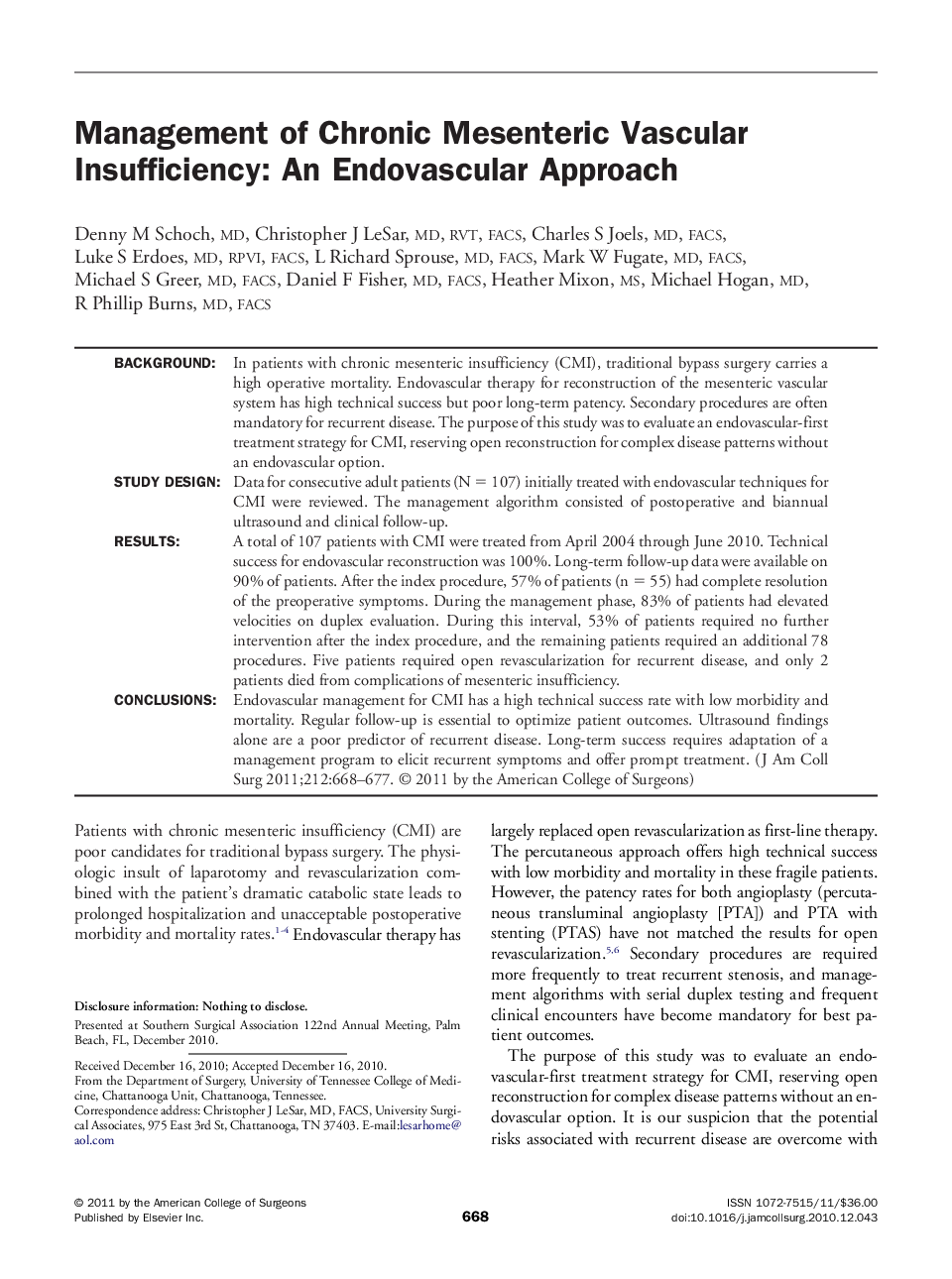| Article ID | Journal | Published Year | Pages | File Type |
|---|---|---|---|---|
| 4292685 | Journal of the American College of Surgeons | 2011 | 8 Pages |
BackgroundIn patients with chronic mesenteric insufficiency (CMI), traditional bypass surgery carries a high operative mortality. Endovascular therapy for reconstruction of the mesenteric vascular system has high technical success but poor long-term patency. Secondary procedures are often mandatory for recurrent disease. The purpose of this study was to evaluate an endovascular-first treatment strategy for CMI, reserving open reconstruction for complex disease patterns without an endovascular option.Study DesignData for consecutive adult patients (N = 107) initially treated with endovascular techniques for CMI were reviewed. The management algorithm consisted of postoperative and biannual ultrasound and clinical follow-up.ResultsA total of 107 patients with CMI were treated from April 2004 through June 2010. Technical success for endovascular reconstruction was 100%. Long-term follow-up data were available on 90% of patients. After the index procedure, 57% of patients (n = 55) had complete resolution of the preoperative symptoms. During the management phase, 83% of patients had elevated velocities on duplex evaluation. During this interval, 53% of patients required no further intervention after the index procedure, and the remaining patients required an additional 78 procedures. Five patients required open revascularization for recurrent disease, and only 2 patients died from complications of mesenteric insufficiency.ConclusionsEndovascular management for CMI has a high technical success rate with low morbidity and mortality. Regular follow-up is essential to optimize patient outcomes. Ultrasound findings alone are a poor predictor of recurrent disease. Long-term success requires adaptation of a management program to elicit recurrent symptoms and offer prompt treatment.
